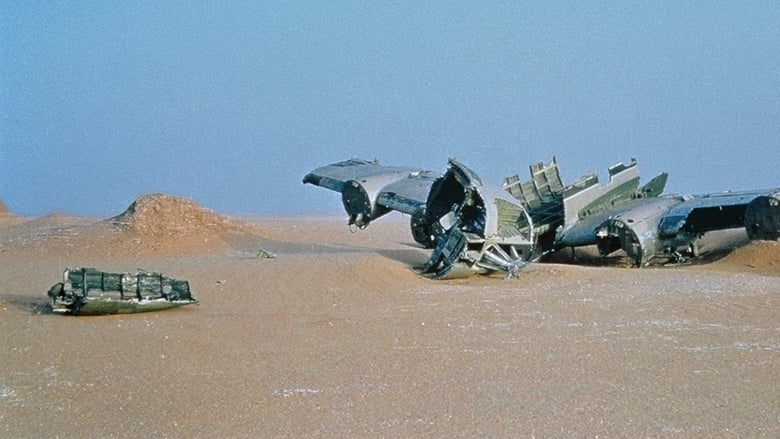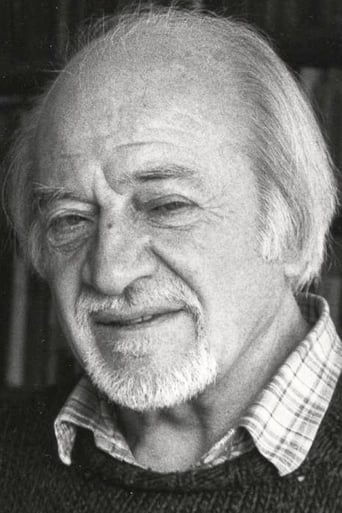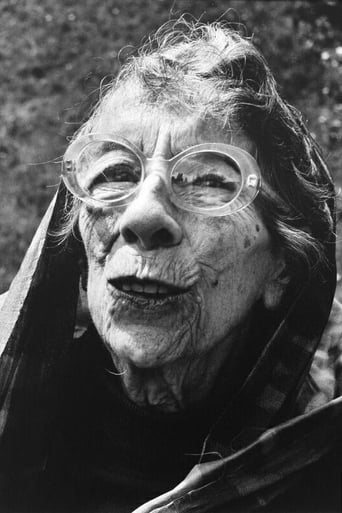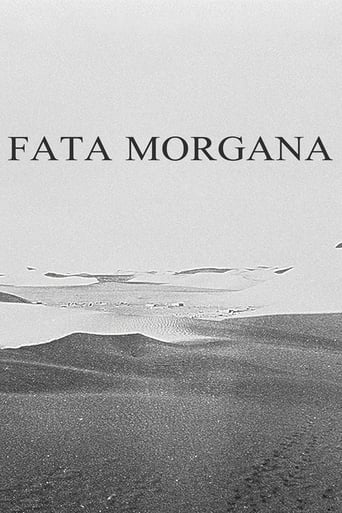
Shot under extreme conditions and inspired by Mayan creation theory, the film contemplates the illusion of reality and the possibility of capturing for the camera something which is not there. It is about the mirages of nature—and the nature of mirage.
Similar titles

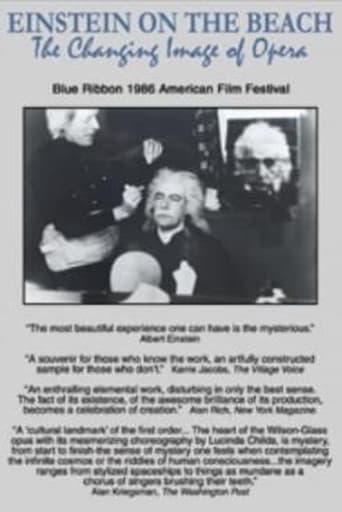
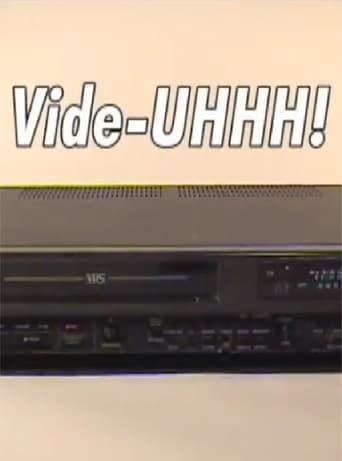
Reviews
i must have seen a different film!!
Bad Acting and worse Bad Screenplay
This is a small, humorous movie in some ways, but it has a huge heart. What a nice experience.
The film never slows down or bores, plunging from one harrowing sequence to the next.
Fata Morgana is, by far, one of the weirdest and most perplexing art films I have ever seen. I hesitate to call it a documentary because, while is does have elements of documentation of it's images, the images themselves are so unusual, so hallucinogenic, so unclear, that I wonder whether it was really worth telling this story just so that these images can exist. The film basically is the tale of the earth and the creation of the earth shot from the perspective of an outsider, be it alien or something otherwise indescribable, all taking place in the Sahara desert. The title of the picture relates to the illusion or reflection of images, both real and hallucinated, that people in the desert often witness. These are also known as mirages.The film opens with a plane landing followed by the plane landing again and then again and again and again and again and again and again. With each plane landing shot, the actual architecture of both the location it is landing at and the plane itself begin to slowly dissolve into one another and grow less and less real and more and more reflective imagery. The imagery in this film only grows more intense and more unusual as the picture continues. The narration of the film tells of the creation of the universe as alarming sexual images of sand and landscape move past the camera. The shots go further and further into the desert and Herzog films whatever he sees and finds. The strangest reflections of the world are on display in the distance while Herzog meets some of the most pure and photogenic collections of outsiders that you are ever likely to see. When the Leonard Cohen soundtrack kicks in, you can be sure that you are in the world of a mad man who is in love with the universe.I cannot say too much more about this film without ruining anything, but I will say that it is a sobering experience and there's really nothing like it. I love seeing films that are just in classes of their own. This film certainly is a good example of how Herzog loves to intermingle narrative storytelling and documentary film-making into an interchangeable form. Fata Morgana unfortunately does overstay it's welcome just a bit, but by the time it nears it's end the images will most likely be burned into your mind forever. Definitely a must-see for those who are obsessed with the nature and the origin of the universe.
Fata Morgana (1971) * 1/2 (out of 4) I knew what I was getting into with this film so I actually read the production notes to before getting to the movie itself and I must admit that the notes were a lot more entertaining. Now, I certainly see why some might love this movie and call it a masterpiece but at the same time, to me, this is just a movie that's "art" for the sake of being art. There's really an interesting movie to discuss here but it's just not an entertaining one and no matter what type of art you're trying to create, the importance of being entertaining can never be overlooked. There's really no way to fully describe or give a plot detail of this film but it's pretty much Herzog's documentary on why images are so important. Shot in Africa, we get all sorts of images of the desert as well as various other tracking shots, which are shown with narration as well as a soundtrack by Leonard Cohen and Blind Faith. I'm really not sure what to say about this film except that it didn't work for me and Herzog's attempt to show the visuals as "aliens looking around" just didn't work. This is something Herzog would attempt later in his career and to me these type of thoughts have always been a miss. I'm sure Herzog has something to say with the film but I don't see it being said in the film itself. I've read his comments and listened to parts of the commentary where he explains things but if it weren't for this, the movie itself wouldn't have said anything. There are certainly some surreal moments and there's no question that a brilliant mind is behind all the images but in the end the film left me cold and bored, which is something I can't say about too many of Herzog's films as he's one of my favorites.
As one other IMDb reviewer puts it, "...imagine 2001: A Space Odyssey in the desert" and you wouldn't be far off from a brief summarisation of what to expect from this piece of cinema (I deeply hesitate to use the word "film"). A lecture on philosophical views on creationism, the mythos surrounding humanities existence, the before and after, that was has been, the what is and the what will be. This for some maybe a "2001" on sand, but they tackle different philosophical viewpoints, one about evolution and the future, the hope and potential for mankind, while Fata Morgana itself is a somewhat more metaphysical trek. I only hope I can convey it effectively enough.Herzogs style will not to be everyones liking, and those who are not of a perceived hardcore branch of cinematic viewing may, and most likely will, find this extremely hard going, and may not even see it through to its finale after 72 minutes. Fusing together a montage of footage from the Sahara, including villages, villagers and various other places for a somewhat surrealist ending, music of various genres and an almost mythical narration, Fata Morgana is severely slow paced but ultimately hugely rewarding. Opening with a montage of various filmed shots of planes landing for nigh on five minutes, you already arrival at the introduction of the film immensely confused, and the sense that this will not be like anything you have seen before echoes clear in your mind. Divided into three sections, creation, paradise and the golden age, Fata Morgana attempts, and succeeds, in being able to juxtapose images of the natural beauty of the desert with the man made instruments that taint it. Its three segments are narrated by different persons each pertaining specifically to the particular section they are voicing and provide extra emphasis on the long soliloquy's and desert montages.Fata Morgana is a film dealing with the existence of man on our Earth. It looks at the natural beauty the Earth was designed for, and concurrently looking at the potential beauty we have within us, more notably shows us our negative contributions to the world in which we live. Each shot has been purposefully constructed, using what can only be described within the context of this film as 'The Holy Trinity Of Filming' in pictures, words and music. Each part of these three pieces provides something notably to each shot, but when brought together they create something greater than the whole of their parts, they create unbridled beauty and deep thought within our minds. I will not be able to do this film the justice it deserves with mere words alone, perhaps if I had pictures and a score, and I do know this will not be appreciated by the masses, but this a profound and I will not use the term "art film" because this is simply just art. This is moving art which moves the mind and stirs the soul. Whether or not creationism is your want is irrelevant, because this film is about intelligent design.
--- most of Herzog's films are best watched with the commentary. His overpowering germanesque English always 'pumps' up the importance of the events/images of his films. In the DVD commentary of this film Crispin Glover is invited along to give his thoughts also.I am very partial to Herzog's films. That said, I find this one toward the top of his heap. There is a certain 'rawness' to the structure and sequences of this film. I believe that most of it was shot during other projects and pieced from footage that was taken in the Sahara. The early parts of the film are the strongest images, the equivalent of moving paintings, showing care in subtle differences in the landscape. There is an erie science fiction quality to the early part of the film that might even be reminiscent of 'Dune'--- mostly for the desert images.The later part of the film is more about a human interaction with the landscape. These people are not actors but ordinary people that Herzog (i'm sure) told them to stand around acting weird--- or maybe genuinely acting foreign to what we know---- many of the people were being filmed for the first time (he loves sophisticating the natives--- tricking them with his modern equipment--- ---one bit of advice--- don't attempt to watch this if you have distractions around--- you have to be in a quiet mood to sustain watching it--- (even I have a hard time sitting through it)---hence my recommend of watching it with the commentary
Top Streaming Movies











